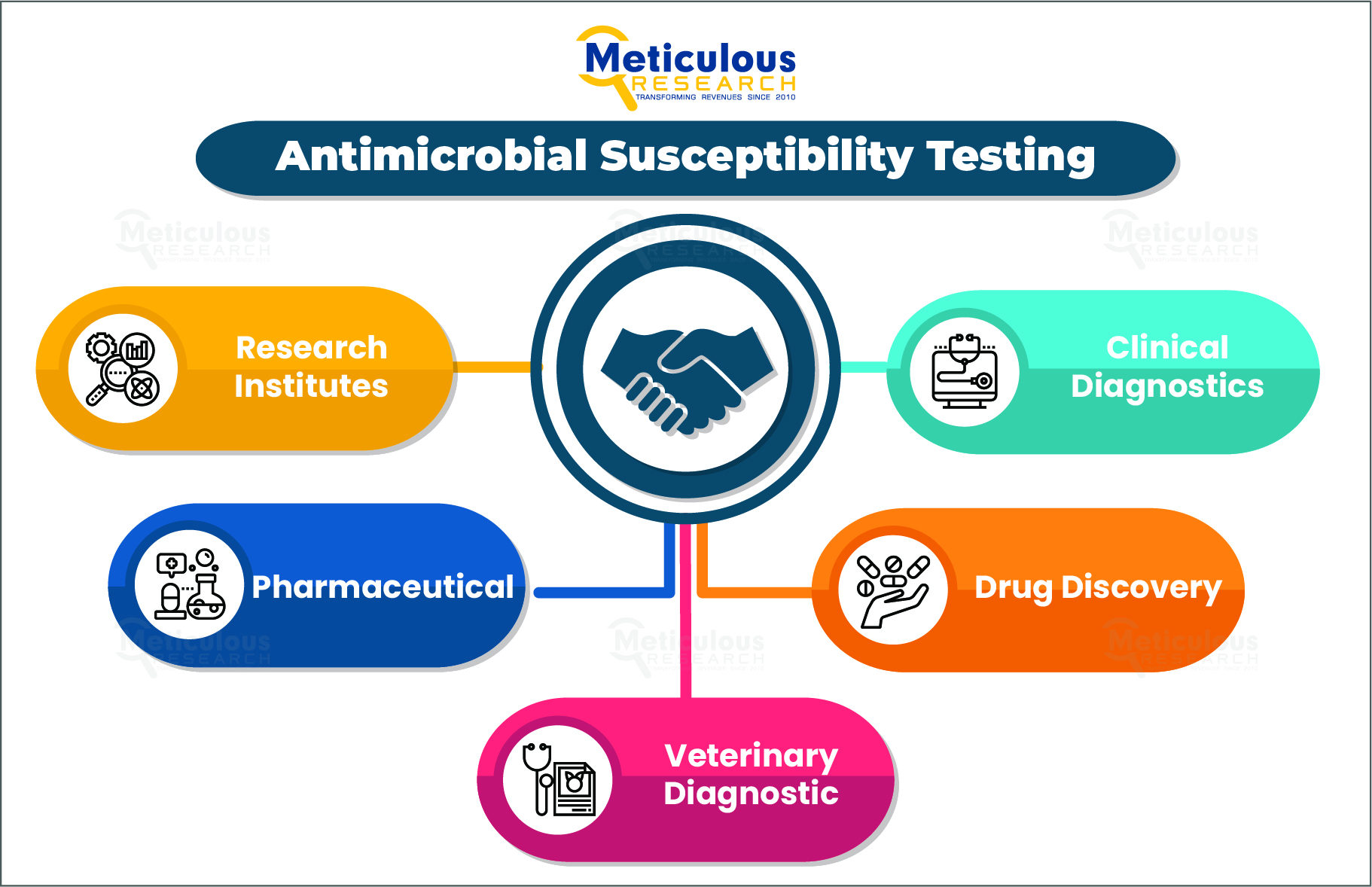
Antimicrobial Susceptibility Testing Market is projected to reach $7.21 billion by 2031, growing at a CAGR of 6.7% during the forecast period.
The global burden of infectious diseases has surged, leading to increased demand for safe and effective diagnostic products. The invasion of the bloodstream by microorganisms presents significant health risks, with infections potentially leading to serious complications such as disseminated intravascular coagulation, shock, multiple organ failure, and even death. Common bloodstream infections include sepsis, dengue fever, HIV/AIDS, and hepatitis (A, B, and C). Among these, sepsis stands out as a leading cause of bloodstream infections, often resulting in organ dysfunction.
Download Complete Sample PDF Copy Here: https://www.meticulousresearch.com/download-sample-report/cp_id=5062
According to the World Health Organization (WHO), there were 48.9 million cases of sepsis in 2017, resulting in approximately 11 million deaths worldwide. Blood culture remains the gold standard for diagnosing septicemia. Given that antibiotics are vital for treating life-threatening infections like sepsis, the demand for antimicrobial susceptibility testing (AST) is critical to ensure the right antimicrobials are used.
Hepatitis B is another widespread infection, putting the affected population at risk of liver complications. WHO statistics from 2020 indicate that by the end of 2015, around 257 million people were living with chronic hepatitis B. Early diagnosis and screening for common bacterial infections are crucial for appropriate treatment, further driving demand for AST.
In addition to the global prevalence of infectious diseases, antimicrobial resistance (AMR) has emerged as a major public health threat. According to WHO, AMR is one of the top 10 global health challenges, with misuse and overuse of antibiotics being the primary contributors. Nearly 700,000 people die each year due to drug-resistant diseases, a number that is projected to rise to 10 million annually by 2050. By 2030, AMR could push up to 24 million people into extreme poverty. WHO has also introduced an AMR indicator as part of the Sustainable Development Goals framework, tracking the frequency of drug-resistant bloodstream infections. Data from 2019 showed that methicillin-resistant Staphylococcus aureus (MRSA) had an average antibiotic resistance rate of 12.1%, while resistance in E. coli to third-generation cephalosporins reached 36%. The high prevalence of AMR is driving the demand for AST as healthcare providers aim to combat the spread of resistant infections.
Check complete table of contents with list of table and figures: https://www.meticulousresearch.com/product/antimicrobial-susceptibility-testing-market-5062
Despite the growing threat of AMR, research and development for new antimicrobials have declined significantly, leading to a shrinking pipeline of effective treatments. In 2019, WHO identified only 32 antibiotics in development, of which only six were classified as innovative. The shortage of accessible quality antibiotics has strained healthcare systems worldwide, further highlighting the importance of AST for optimizing antimicrobial use and exploring new clinical treatments.
As AMR continues to reduce the efficacy of antibiotics, the failure to treat common infections with standard therapies has resulted in prolonged illness, higher healthcare costs, and increased mortality. The rise in multidrug-resistant bacteria is fueling the need for advanced AST to guide appropriate antimicrobial therapies.
Request Sample PDF Copy Here: https://www.meticulousresearch.com/product/antimicrobial-susceptibility-testing-market-5062
Governments around the world are actively addressing AMR through initiatives and funding aimed at increasing awareness and improving treatment strategies. These initiatives also support the development of new antimicrobial products and promote AST for better infection management. For instance, in October 2020, the U.S. launched the National Action Plan for Combating Antibiotic-Resistant Bacteria (CARB) for 2020–2025, focusing on infection prevention, control, and optimized antibiotic use. Similarly, in 2019, the U.K. government introduced a 20-year vision and 5-year action plan to combat AMR, aiming for a 10% reduction in drug-resistant infections by 2025 and a 15% decrease in antibiotic usage. The Swiss government also initiated a 4-year campaign in 2018 to raise awareness about appropriate antibiotic use and the research of new antibiotics to address resistance.
Buy now: https://www.meticulousresearch.com/Checkout/47104827
Such government-led efforts are expected to significantly boost the demand for antimicrobial susceptibility testing products. According to Meticulous Research®, these initiatives will drive the global antimicrobial susceptibility testing market to grow at a CAGR of ~6.4%, reaching $5.99 billion by 2028.
Contact Us:
Meticulous Market Research Pvt. Ltd.
1267 Willis St, Ste 200 Redding,
California, 96001, U.S.
USA: +1-646-781-8004
Europe : +44-203-868-8738
APAC: +91 744-7780008
Email- sales@meticulousresearch.com
Visit Our Website: https://www.meticulousresearch.com/
Connect with us on LinkedIn- https://www.linkedin.com/company/meticulous-research







